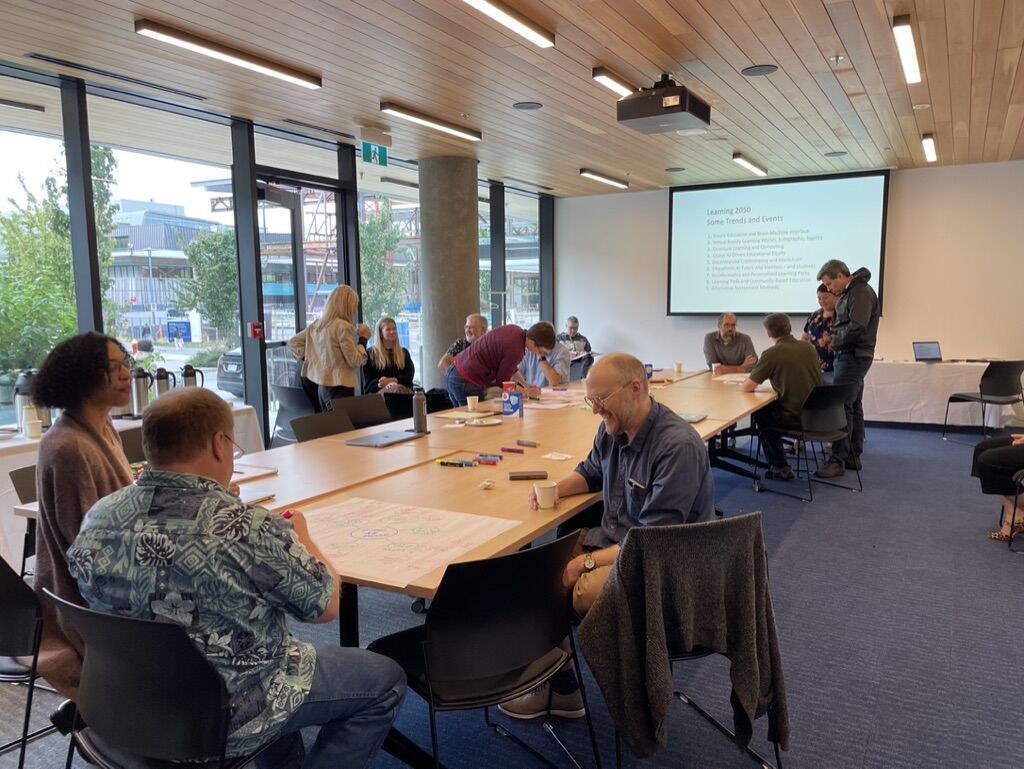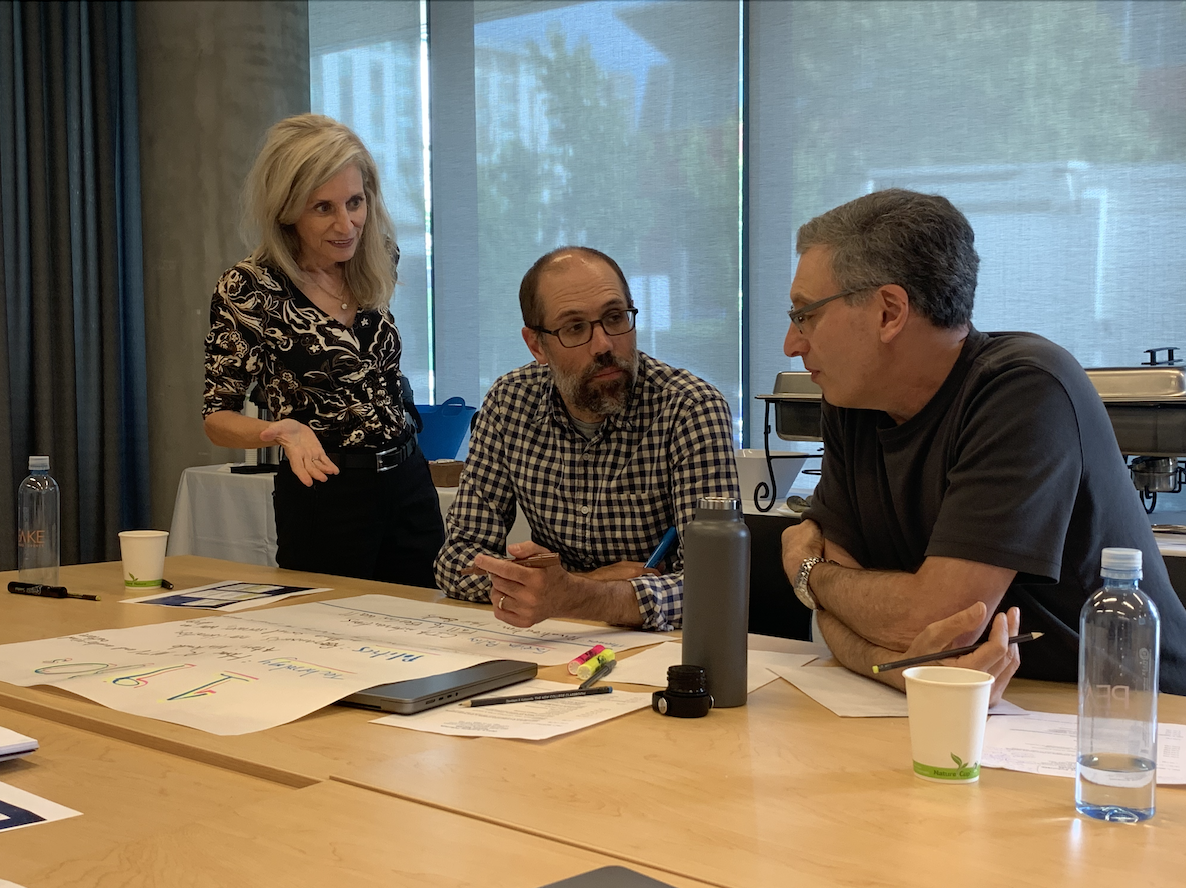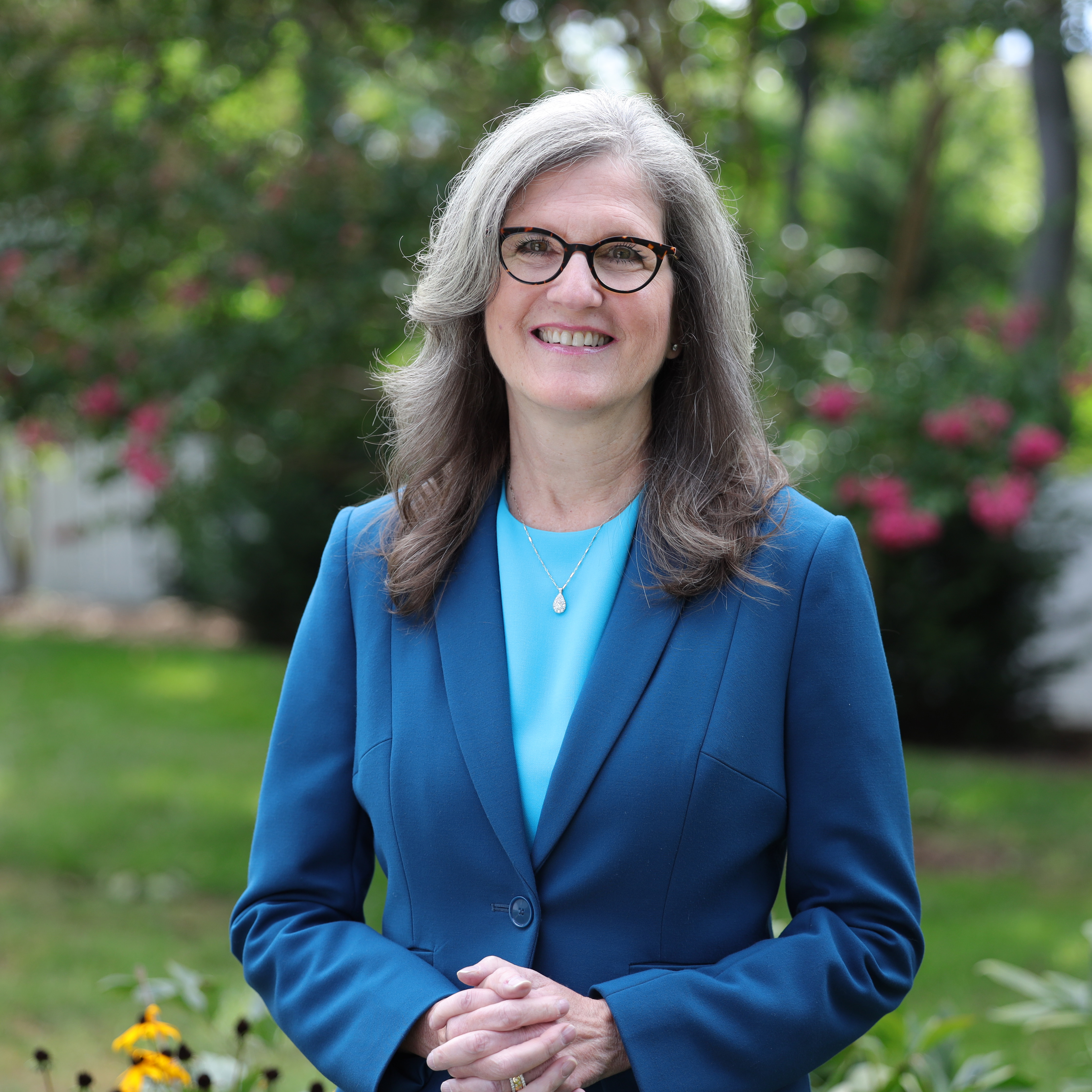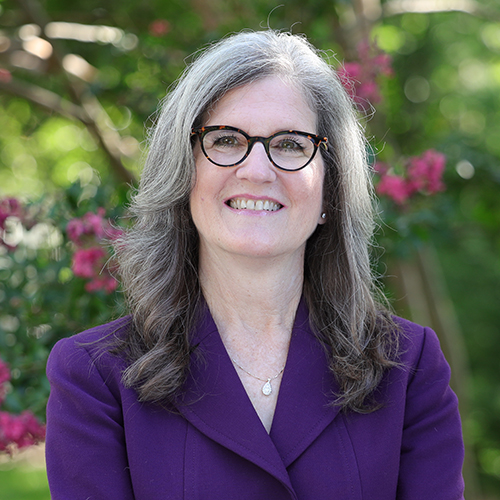What tools are required in order to think productively about the future? What methods do we need to learn to structure futurist thinking, and what values will inform our visions of the future? How might we be able to identify a set of preferred futures, and then set about working towards their eventual realization?

As our inaugural group of Dean's Academy Futurists gathered on the University of British Columbia campus in Vancouver for three days in mid-September, these were some of the questions we asked as we began to consider the future of higher education and liberal arts education. After nearly a year of planning, and as a key part of our Rethinking the Academy initiative, our first class of eleven faculty futurists rolled up their sleeves and dug into the challenging work of answering those big questions. With patience, generosity, humor, skill, and creativity, they brought their expertise to the work but also learned to set aside the frameworks of their disciplines—the lenses through which they usually approach their work—in order to engage as completely as possible in futurist thinking. We examined a range of assumptions, considered trends and signals, images and narratives; We cultivated foresight, embraced uncertainty and complexity, and leapt into a new set of models for thinking, analyzing, seeing.
We both considered higher education and didn’t—we tried to banish the weight of the present in order to free our minds for the future. This retreat—the first of three planned for this academic year—was primarily organized to support what we called “mindset work,” learning to lift our thoughts beyond the myriad challenges of the present, beyond known conditions and solutions to cultivate the cognitive space for thinking about the future. Like all experiences that involve learning, there were moments of frustration but many more of laughter and discovery. We met with a group of UBC entrepreneurs to hear about their work, not because we are particularly interested in start-ups, but because they specialize in experimentation and innovation, they support creative risk-tasking and opportunities for productive failure. We learned from them about some alternative models for work in the academy. We also benefitted from a conversation with the new Dean of the Faculty of Arts at UBC, Dr. Clare Haru Crowston, that compared challenges facing Canadian and US higher education systems and in which we learned more about UBC’s Indigenous Strategic Plan. It was energizing.
So, what have we learned so far? First, we several times had to remind ourselves how rare it is to be in the same room and engaged in ongoing conversation with colleagues from eleven distinct disciplines but focused on a single, shared topic. The transdisciplinarity on display was often impressive, but sometimes also meant that we encountered confusion around the use of specific terms that hold distinct meanings that may vary across disciplines (‘chaos,’ for example).

In seeking to create scenarios for preferred futures, we realized through a series of exercises the extent to which the future exists alongside the present and the past. This may be an obvious discovery, but it’s also a meaningful one that will likely continue to loop through our work.
Realizing that pockets of the future exist in the present if we can only learn to see them will surely help us as we seek to envision the post-2050 world we hope to create.
In order to facilitate the mindset work we set as our primary goal, we had planned to spend little time in this first retreat actually thinking about higher education, or about near-term problems and solutions. That turned out to be challenging for a group of faculty who spend every day enmeshed in the classroom, the laboratory, the studio, the office. It can be very difficult, it turns out, to look at the sky when we are so firmly tethered to the ground. Although we toggled between 30,000-foot views and staring at some harsh, on-the-ground realities of the present, we managed in the end to achieve a balance—one that permitted us to focus on learning some of the tools, methods, theories, and histories of futurist thinking and to start doing some scenario-building, while holding on to the big questions before us. We left, I think, with a strong sense that there is much more to learn about this work of “thinking like a futurist,” and with at least some understanding of what lies ahead as we begin our journey.
The Futurists constitute a think tank for the college, our incubator for new ideas, for trying some new things that might fail but are worth exploring. We don’t yet know exactly what will come of this work. We are giving ourselves the freedom to fail. But the chances that we will succeed at finding a brighter future for higher education and the liberal arts is much more assured if we try than if we do nothing.
Although this year’s group of Futurists is a small one, we will welcome another class of Futurists in 2024-25 to join this year’s Futurists as they embark on their second year. And we will be constituting groups of Dean’s Academy Fellows this year who, in contrast to the long-term future our Futurists are envisioning, will address some of the more pressing, near-term challenges we face. As this academic year unfolds, departments may want to do some futurist visioning themselves, expanding the think tank across the college. We welcome everyone in the college to engage in this exciting work, to help us create higher education and the liberal arts for future generations.
More Stories

From the Dean
Dianne Harris reflects on her first six months as dean, and the “dedication to excellence and deep veins of creativity” she has found throughout the College of Arts & Sciences.

New Dean, New Perspectives
A conversation with Dianne Harris, new dean of the UW College of Arts & Sciences.
